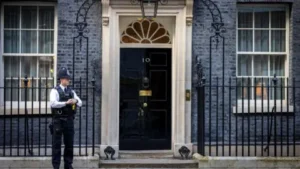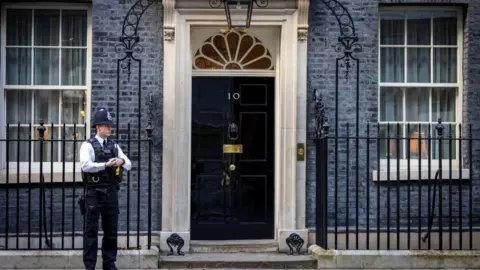**Monzo’s Serious Oversight: Address Verification Issues Lead to Regulatory Fine**
In a striking revelation, digital bank Monzo has been called out for its failure to implement proper verification checks on customer addresses during the account opening process. Recent findings indicate that the bank inadvertently accepted applications linked to high-profile London addresses, such as 10 Downing Street and Buckingham Palace, alongside its own headquarters. The scandal has surfaced amidst an extensive investigation carried out by the Financial Conduct Authority (FCA), raising questions about Monzo’s commitment to safeguarding against financial crime.
The root of the issue lies in Monzo’s inadequate measures regarding address verification. The absence of sufficient checks meant that the bank failed to identify implausible applications that utilized notable London landmarks. Regrettably, this oversight translated into a risk-laden customer base, additionally including P.O. boxes, foreign addresses paired with UK postcodes, and too-good-to-be-true residential addresses. The FCA’s inquiry uncovered systemic flaws that allowed such risky accounts to proliferate, ultimately illustrating a stark deficiency in Monzo’s financial crime controls.
In light of these significant failings, the FCA imposed a £21 million fine on Monzo, labeling it as a consequence of their ongoing negligence concerning anti-financial crime protocols. Monzo quickly acknowledged the regulator’s findings, suggesting that these problems trace back over three years, a period during which they have since enacted substantial improvements to their operational systems. Despite their assurances, critics remain skeptical about the revelations and the implications they hold for the bank’s integrity and customer trust.
Over the years, Monzo has burgeoned in popularity, attracting customers with its digital-first banking model that promises hassle-free services devoid of physical branches. The bank witnessed exponential growth, with customer numbers soaring from approximately 600,000 in 2018 to surpassing 5.8 million by 2022. However, this rapid escalation in clientele has not been matched with a corresponding enhancement in its anti-financial crime mechanisms, which has drawn the ire of the FCA.
Therese Chambers, the FCA’s joint executive director for enforcement and market oversight, emphasized the pivotal role banks play in combating financial crime. She articulated the necessity for financial institutions to have robust systems in place that prevent illegal funds from infiltrating the economic landscape. The diligent practices expected of banks appear to have fallen short in the case of Monzo, which was stated to have “fallen far short of what we, and society, expect.”
TS Anil, the chief executive of Monzo, has stepped forward to provide context around these findings. He remarked that the FCA’s conclusions signal the closure of matters that the bank has already addressed, emphasizing that these issues belong firmly in the past. Notably, the infractions leading to the fine occurred between October 2018 and August 2020. Nevertheless, the regulator highlighted a continued breach of regulations regarding high-risk customers extending from August 2020 to June 2022, calling into question the efficacy of Monzo’s proposed reforms.
Additionally, Anil underscored that the challenge of financial crime transcends Monzo alone and that the banking sector as a whole grapples with these adversities. He assured stakeholders that the bank is actively endeavoring to mitigate such risks and bolster their defenses against illicit activities, thereby regaining the trust of its clientele.
In summary, the recent scandal reveals a concerning narrative about Monzo’s past operational ineffectiveness, raising long-standing questions about its procedures for a bank that holds the trust of millions. As Monzo strives to turn the page on this chapter, stakeholders will be keenly observing the bank’s future actions and whether it can truly fortify its systems against financial misconduct effectively. With larger implications for the fintech sector as a whole, this case may serve as a cautionary tale for other digital banks navigating similar rapid growth trajectories while ensuring robust compliance with regulatory standards.











